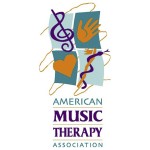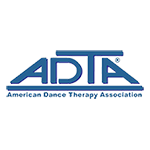Frequently Asked Questions
FAR uses arts and recreational experiences as therapeutic tools to develop the potential of people with disabilities as individuals, as teammates, as family members and as members of the larger community.
FAR uses the term arts and recreation therapy to encompass three kinds of therapy: Art Therapy, Music Therapy and Recreation Therapy. The following are the definitions for each of these as provided by their respective professional associations.
 “Art Therapy is the therapeutic use of art making, within a professional relationship, by people who experience illness, trauma or challenges in living, and by people who seek personal development.”
“Art Therapy is the therapeutic use of art making, within a professional relationship, by people who experience illness, trauma or challenges in living, and by people who seek personal development.”
— American Art Therapy Association
Art therapists are required to have a Master’s Degree.
 “Music Therapy is the clinical and evidence-based use of music interventions to accomplish individualized goals within a therapeutic relationship by a credentialed professional who has completed an approved music therapy program.”
“Music Therapy is the clinical and evidence-based use of music interventions to accomplish individualized goals within a therapeutic relationship by a credentialed professional who has completed an approved music therapy program.”
— American Music Therapy Association
Music therapists are required to have a Bachelor’s Degree and be Board Certified.
 “Recreational Therapy means a treatment service designed to restore, remediate and rehabilitate a person’s level of functioning and independence in life activities, to promote health and wellness as well as reduce or eliminate the activity limitations and restrictions to participation in life situations caused by an illness or disabling condition.”
“Recreational Therapy means a treatment service designed to restore, remediate and rehabilitate a person’s level of functioning and independence in life activities, to promote health and wellness as well as reduce or eliminate the activity limitations and restrictions to participation in life situations caused by an illness or disabling condition.”
— American Therapeutic Recreation Association
Recreational therapists are required to have a Bachelor’s Degree and be Board Certified.
 “Based on the empirically supported premise that the body, mind and spirit are interconnected, the American Dance Therapy Association defines dance/movement therapy as the psychotherapeutic use of movement to further the emotional, cognitive, physical and social integration of the individual.”
“Based on the empirically supported premise that the body, mind and spirit are interconnected, the American Dance Therapy Association defines dance/movement therapy as the psychotherapeutic use of movement to further the emotional, cognitive, physical and social integration of the individual.”
FAR offers a wide range of programming options drawing from the fields of art therapy, music therapy and recreational therapy in order to provide clients the approach that best meets their needs.
There are many options available to people with disabilities, but few provide creative arts and recreation therapy.
Unlike education on a particular subject, at FAR, the focus is less about the subject of study, and more on the client’s development. In other words, at FAR, the subject of study is the means; achieving therapeutic results is the real goal. FAR’s therapists awaken our clients’ interests and skillfully nurture them to reach their full potential as individuals, as teammates, as family members and as members of the larger community.
This is also different than many more specialized traditional therapies, which focus on improving performance in one particular area (e.g., physical, occupational, speech, etc.). While such therapies are critically important — and many FAR clients participate in them as well — they are fundamentally different. FAR’s therapists harness the power of creative arts and recreation to nurture the development of the whole person to:
- Overcome physical, intellectual and emotional barriers
- Develop new skills
- Establish and reinforce a pattern of success
- Build self-esteem
- Improve interpersonal relationships
- Become part of a community
- Discover the joy of self-expression
Many of our clients and their families and caregivers tell us they had all but given up until they found FAR.
The therapy offered at FAR has many benefits, positively impacting client communication, cognitive ability, motor and social skills. Creative arts therapies can increase self-awareness, improve social skills, and foster self-esteem. FAR therapists assess each client to establish individual goals up front and then document progress toward those goals over time. As a result, the impact of FAR’s therapy is clear for every client in each semester.
As a therapeutic organization, FAR serves those with mental, emotional or physical impairments. FAR’s team takes pride in making every effort to accommodate applicants of any age or diagnosis. While FAR does not exclude anyone from applying, some applicants may be better served through treatments that are beyond the scope of FAR’s offerings. The therapeutic staff will advise caregivers if that’s the case for their applicant. FAR’s team may also be able to refer such applicants to other resources that are better suited to meet their needs.
FAR Insurance includes all the coverage’s necessary for a non-profit serving the disabled community. Please contact the FAR office for details and/or questions about specific coverage.
Generally, private therapy sessions at FAR are conducted once a week for a half hour, although there are some exceptions. Group activities are normally 45 minutes or an hour weekly.
We need you to be in the building during scheduled sessions because the therapist may need the responsible party to interpret the client’s needs or assist with challenging behaviors.
Parents and caregivers are strongly discouraged from entering the therapy room during a session. The therapist and client are building an important relationship that is critical to therapeutic success. Unfortunately, the presence of others, particularly a parent or sibling, often interferes with this. Not being in the room, however, does not mean you are excluded from the process. Each therapy room is equipped with either sidelight windows or door windows where you can observe. Your therapist will also allow for a few minutes at the conclusion of each session to share progress made or to answer any questions. Of course, if the therapist feels you are needed during the sessions for any reason, you will be invited into the room.
While we have structured our semesters to be similar to an academic school year, we realize that this may not be appropriate for all situations. Therefore, we try to be very flexible when enrolling clients. Contact the FAR office to discuss this if applicable to your situation.
We recognize that some changes just can’t be avoided and we try to be accommodating. However, we suggest you encourage your child to continue because often it takes time to become acclimated to the therapy. If you must withdraw, a full or partial refund may be available. Please contact FAR’s office to discuss this.
For private therapy, the time of your session has been set for the duration of the semester with your therapist, whose schedule may not allow much flexibility. If sessions are missed, please see FAR’s Refund Policy.
Group activities will not be made up unless a therapist cancels a session or there is a building or weather-related issue. If the therapist cancels the session and the client and therapist are unable to schedule a time for make up, the office may issue credit to the client.
FAR understands the strain on many families’ budgets. If you cannot pay for the semester in advance as required, contact the FAR office. We may be able to accept two incremental payments or make other arrangements. Also, be sure to check our Scholarships to learn about the financial assistance we offer.
Groups will be cancelled if fewer than three clients register. FAR makes every effort to fill groups and create them when there is interest. As a new group is forming, it may have less than three clients. The office will contact you to discuss possible options if the group fails to meet this minimum enrollment requirement. Keep in mind that if only two clients are interested in a group session, it may be possible to convert it to a semi-private session.
Private therapy sessions are scheduled for a “therapeutic half hour” or a “therapeutic hour” in which therapists work with clients directly for all but five minutes (or occasionally less) of the nominal time. The remainder is used to discuss progress, challenges, logistics or other matters with the client’s parent or caregiver.
Thanks to the generous contributions of many individuals and organizations that support FAR, we provide scholarships to clients in financial need.
